A funny thing happened to Barry Manilow on the way to Broadway: He wound up a pop star instead.
"I set out to write for the musical theater, but I got sidetracked," said Manilow, 57, who’ll be honored by the Society of Singers April 28 at the Beverly Hilton Hotel.
At 18, he wrote the score for off-Broadway’s "The Drunkard," then drifted into conducting, arranging and producing. Ten years later, he was working as Bette Midler’s pianist and record producer when he chanced to open for her act and drew attention to himself as a soloist. The result was his own solo tour and the syrupy 1974 hit, "Mandy," which propelled Manilow to superstardom and launched his reputation as king of the schmaltzy ’70s ballad. "But I had never listened to pop music," he said from his Palm Springs home. "I was snobby about it. I didn’t respect it. It didn’t turn me on."
Today, Manilow is finally returning to his musical theater roots with "Harmony," which he hopes will help shake his lingering pop image. The show is based on the true story of the Comedian Harmonists, the virtuostic German singing group that rose to meteoric fame in the 1920s but was disbanded by the Nazis. Three of the six members were Jewish, including the group’s founder, Harry Frommermann, and Josef Roman Cycowski, a Pole who later worked as a cantor in San Francisco. Created by Manilow and his longtime lyricist, Bruce Sussman, "Harmony" was well-received at the La Jolla Playhouse in 1997 and will reopen in Ft. Lauderdale in October.
Manilow describes his protagonists as "the Marx brothers meets the Manhattan Transfer. But the Germans virtually eradicated their memory," he said. "They destroyed every album except for the ones people hid under their beds."
While the group has reemerged in popular culture with works such as the 1997 feature film, "The Comedian Harmonists," they were obscure when Manilow received an urgent telephone call from Sussman one night in April 1991.
The lyricist told Manilow he’d been reading The New York Times that morning when a photograph caught his eye: "It was six young men with hair brilliantined, in white tie and tails," Sussman told the Journal. "I realized that while I know pop music history pretty well, I knew nothing about these guys. So I was inspired to go see this three-and-a-half hour German-language documentary about them."
Afterward, he rushed out of the Manhattan theater and braved the rain to call Manilow from a pay phone.
"Bruce said, ‘I think I’ve got our musical theater project,’" Manilow recalled. "He said, ‘This is a compelling story with a lot of emotion.’ I got a copy of the film and I agreed."
Like Sussman, Manilow said he was moved by "the irony of these people trying to find harmony in the most discordant of times. As a musician, I was horrified by the idea of not being able to make music and being destroyed because of other people’s judgements. As a man raised in the Jewish faith, I also found the subject matter profoundly moving."
Since the story touches on the Holocaust, Manilow felt the stakes were especially high. "It was a bit daunting," he said. "There were many moments when I had to shut down my computer, close the lid of the piano and just leave for a while."
Manilow’s relatives left Europe before the Holocaust, but he grew up surrounded by survivors who had resettled in his low-income neighborhood of Williamsburg, Brooklyn.
"They seemed grateful to be alive, but somehow paralyzed," he recalled. "It was all about getting and keeping things and the fear of somebody taking something or someone away from you."
Manilow, for his part, was raised by his Yiddish-speaking Russian grandparents and his mother, Edna, who had aspired to become a singer before becoming pregnant with Barry as a teenager. When Manilow was 7, she gave him an accordion, the only instrument the family could afford; while he loathed it, the lessons at least taught him how to work a keyboard. Around the time of his bar mitzvah, he enthusiastically switched to the upright piano his Irish stepfather, Willy Murphy, brought with him when he moved in.
Murphy also brought an impressive record collection into the household, which introduced young Barry to the musical theater. Years before he could afford to attend a Broadway show, he had memorized all the lyrics to productions such as "Fiddler on the Roof" and "The King and I."
After he unexpectedly became a pop icon, tall, tanned Manilow sold more than 58 million albums, won Tony and Grammy awards and posted 38 Top 40 hits, including the campily fun "Copacabana." He also endured his share of critical barbs. As "Harmony" director David Warren told the Los Angeles Times, in high school in the ’70s, "It was so uncool to like Barry … that I did the best I could not to like him."
Music reviewers routinely dissed Manilow: "It was infuriating, crazy-making" he said, his voice rising for the first time during an interview. "I was a terribly angry guy, and so were all the people around me, because they knew pop was only the tip of the iceberg for me. It eclipsed everything else I wanted to do."
Finally, in 1984, Manilow told recording industry legend Clive Davis he’d run out of pop ideas and went off to make a jazz record with Gerry Mulligan, Sarah Vaughan and Mel Torme. While his popularity waned, he continued cranking out records and filling concert halls, winning a public reassessment when Rolling Stone dubbed him "the showman of our generation" in 1990.
Several years later, he and Sussman collaborated on the animated films "Thumbelina" and "The Pebble and the Penguin," which paved the way for "Harmony."
"It reminded us of how much we loved writing songs that were character- and situation-driven," Manilow said.
While Sussman went off on a research trip to Berlin, Manilow immersed himself in klezmer and cantorial melodies as well as German music of the ’20s and ’30s. He went on to write some 19 songs, based on the kind of numbers the Comedian Harmonists might have sung, striving for realism but not mimicry.
"My biggest challenge was to convey, to a contemporary audience, just how innovative these guys were," Manilow said.
Also challenging was tracking down the last living Harmonist, Cycowski (1901-1998), who was no longer at his synagogue in San Francisco. On a lark, Sussman called directory assistance in Palm Springs and got a number for a "Rev. Josef R. Cycowski"; it turned out the ex-Harmonist lived practically walking distance from Manilow. The singer-songwriter promptly visited the ailing nonagenarian, who told him the group was once "bigger than the Beatles."
These days, Manilow is preparing for the summer release of "Midnight," the jazz album he co-produced for singer Diane Schuur, and "Two Nights Live," recorded during his sold-out LIVE2002! tour. But he is most excited about "Harmony’s anticipated 2004 Broadway debut.
"It’s the most challenging project I’ve ever done," he said. "It’s made me feel that my career has come full circle."
For tickets and information about the Society of Singers dinner, where Manilow will receive the 12th annual Ella Award, call (323) 653-7672.










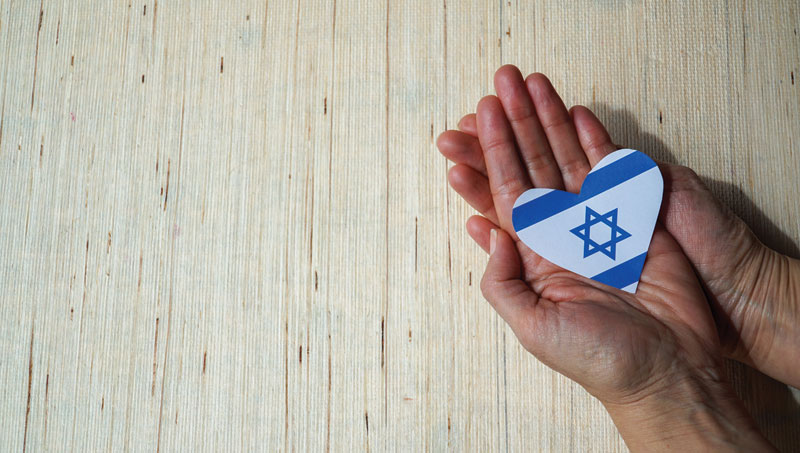

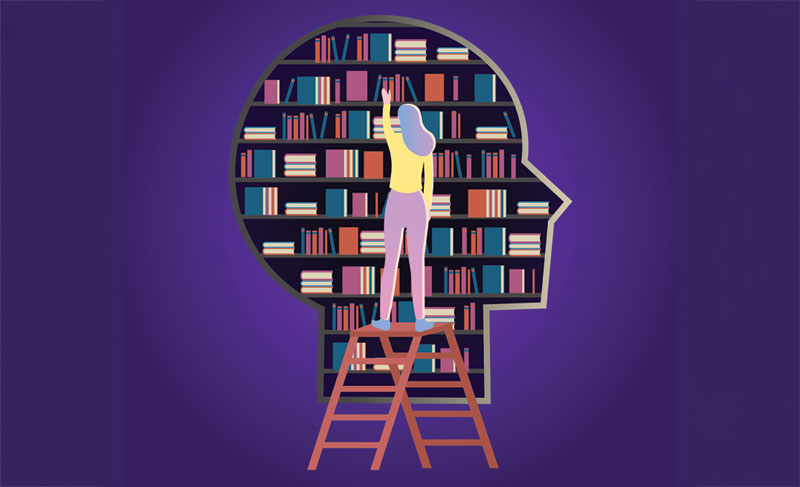
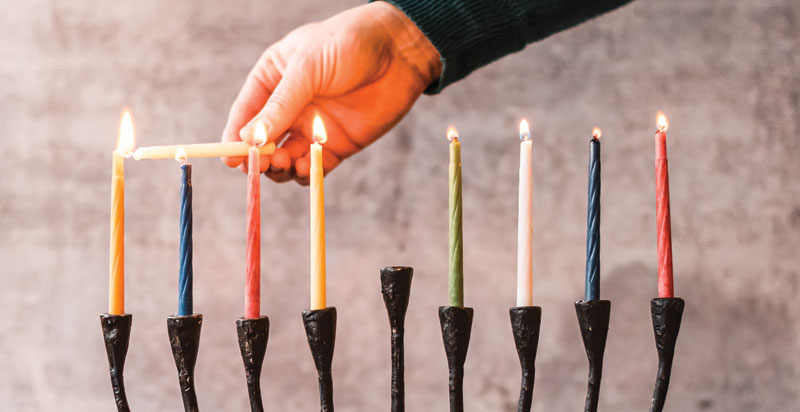
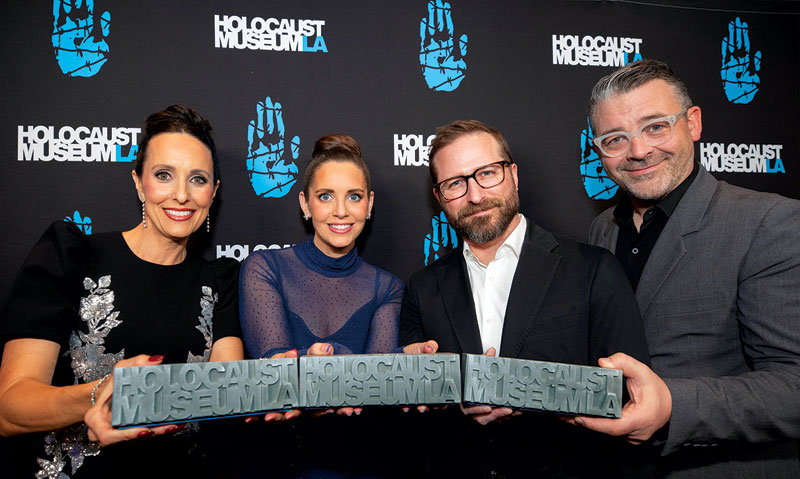
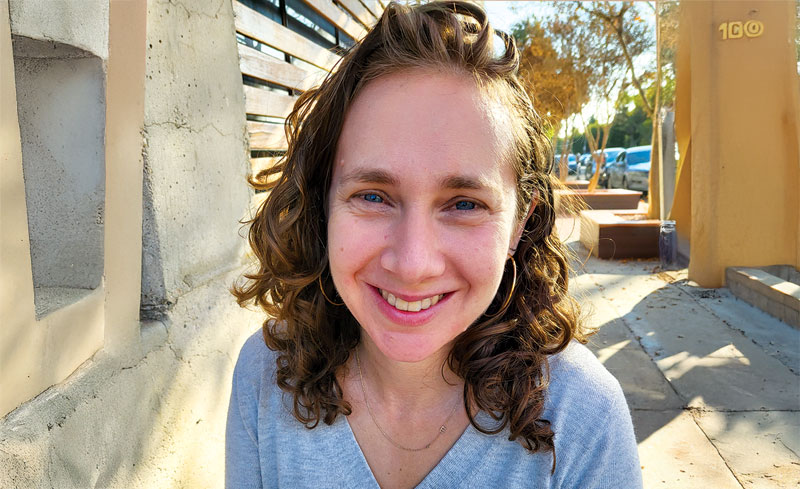
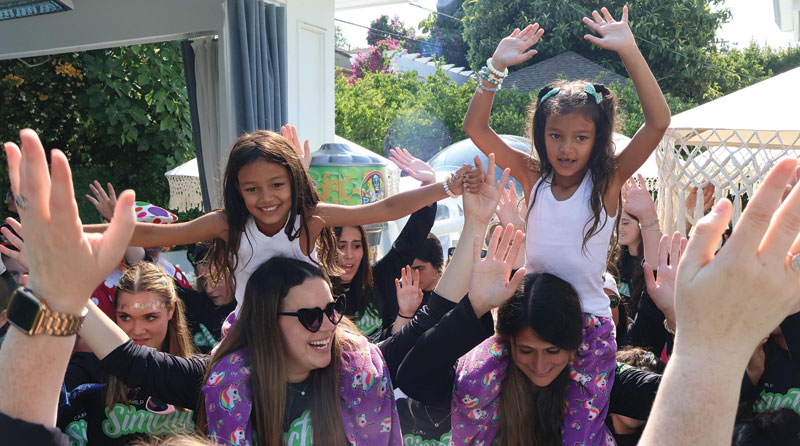





 More news and opinions than at a Shabbat dinner, right in your inbox.
More news and opinions than at a Shabbat dinner, right in your inbox.